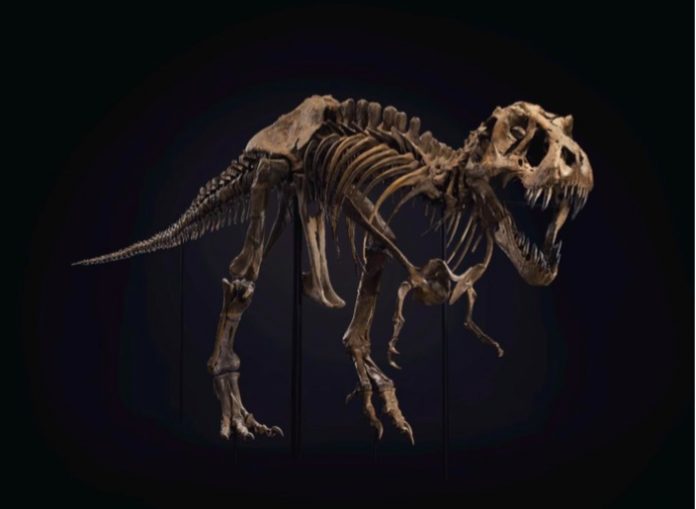Christie’s 20th-century evening art auction, which included one major and notable non-art item (more on that below), was conducted via livestream from Rockefeller Center on Tuesday night, and realized $340.8 million, squarely in the middle of presale expectations of $277.3 million to $401.4 million. (Final prices include premiums; pre-sale estimates do not.)
Expectations were revised downward after four lots—including a heavily marketed Brice Marden painting titled The Golden Pelvic (1993–95) that was estimated to sell for $12 million to $18 million—were withdrawn just before the start of the sale.
Forty-six of the lots offered (86 percent of them) sold by lot; 96 percent sold by value, according to the auction house.
Auctioneer Adrien Meyer, chairman of global private sales, conducted the sale in a room full of specialists on phone banks. He also fielded phone bids from salesrooms in London and Hong Kong, and online via Christie’s website.
There was a fair amount of added theater, as specialists vied to convey some of the “in real life” tension that takes place in the auction room. Christie’s added an extra layer of atmosphere with the inclusion of elaborate set designs and background music that seemed aimed at filling in some of the pauses in bidding. Some specialists were even decked out in jewels to be featured in forthcoming auctions.
There was also the novelty of live commentary by two veteran specialists. Informative but low key, it seemed to work just fine, though there was an element of “golf” chatter to the proceedings.
Of the 55 lots on offer, 14 were guaranteed, including two that found backing immediately before the sale opened. In a sign of how third-party guarantors are often wheeling and dealing right up to the start of a sale, the number of third-party guarantees rose from eight to 10 earlier in the day.
Bidding was solid if rarely heated throughout most of the night, suggesting that buyers were clear on what they wanted and at what price. The cautious tone further underscored the need for securing guarantees on the selling side. Some experts suggested that the early-season date of the sale, well ahead of the usual November auctions, was what led to quieter bidding on presumed trophy lots.
Alex Rotter, co-head of the 20th- and 21st- century art teams at Christie’s, conceded that the timing of the sale was quite deliberate, considering the forthcoming US election and further potential health concerns this fall.
“Are we thinking about these things? Absolutely,” he said in a press conference following the sale, adding: “Obviously it works: 280,000 viewers and $340 million worth of sales. I’m good with that.”
The grand finale of the evening—the unprecedented auction of a T-Rex skeleton named “Stan” that carried an estimate of $6 million to $8 million—is likely to linger in everyone’s memory. Christie’s even brought out a separate auctioneer, Tash Perrin, to auction the lot, one of the largest and most complete Tyrannosaurus rex skeletons ever discovered. It was offered without a reserve or minimum.
After Perrin opened bidding at around $3 million, it was chased mostly by two Christie’s specialists up to the mid $20 million range. But their pursuit was interrupted periodically, and rather bizarrely at times, by Rotter, whose client sent the price several million dollars higher at several points, instead of sticking to the $500,000 increments the two other competitors were adhering to.





























